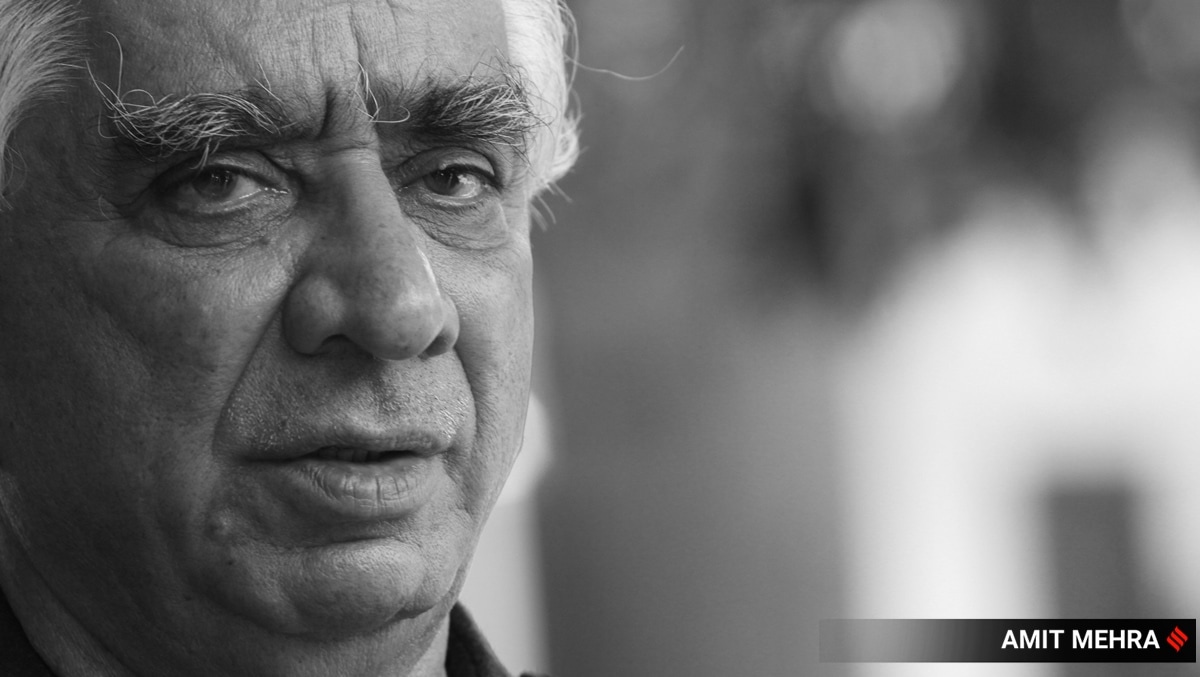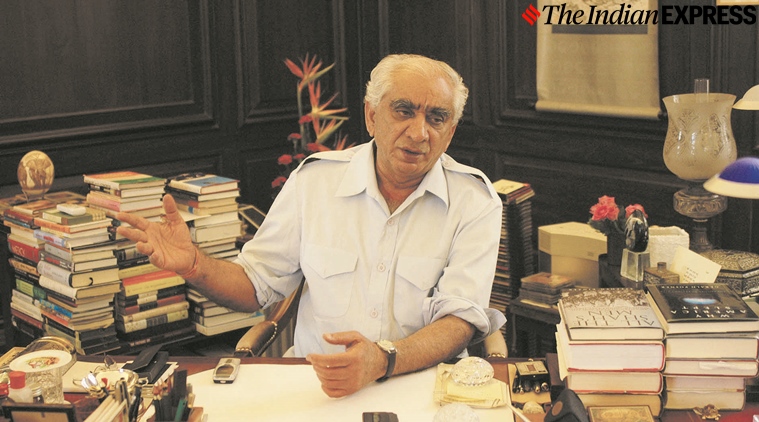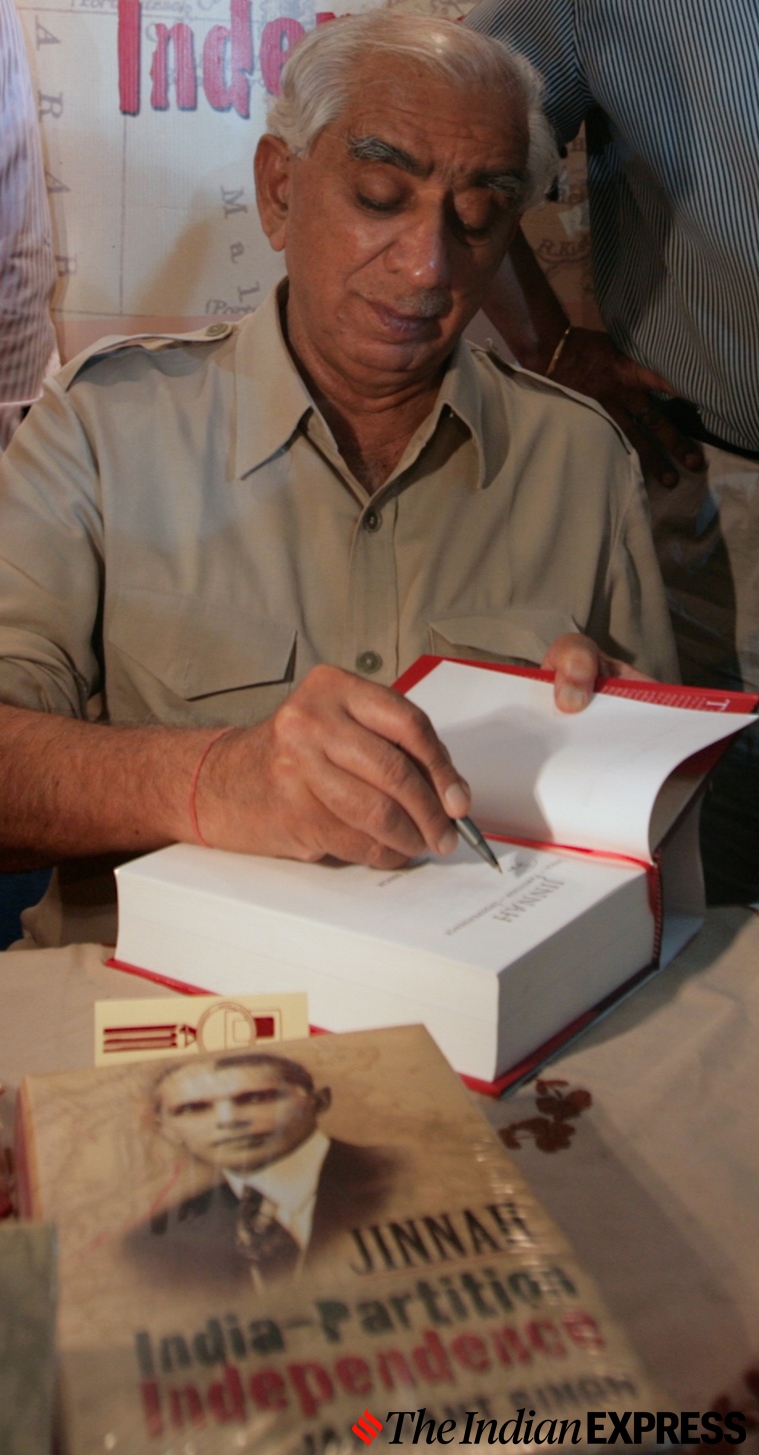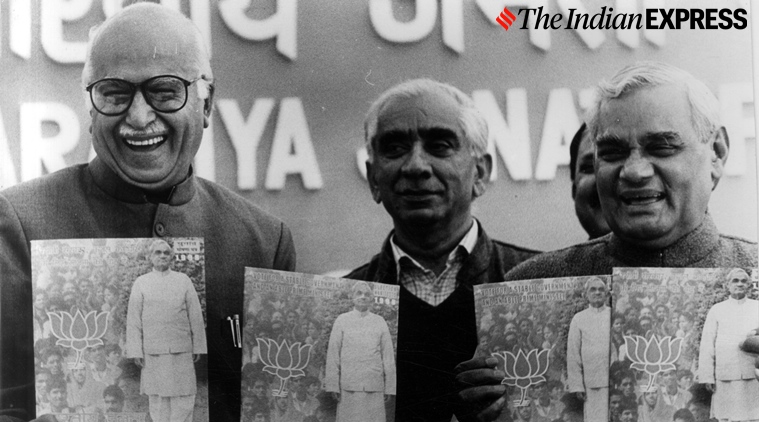
[ad_1]
 Jaswant Singh died after a cardiac arrest at the Army Hospital (R&R). (Express Photo by Amit Mehra/File)
Jaswant Singh died after a cardiac arrest at the Army Hospital (R&R). (Express Photo by Amit Mehra/File)
The passing away of Jaswant Singh Sunday marks the end of another chapter in the fading out of the Atal Bihari Vajpayee era in the BJP. Coincidentally, the demise of one of the chief architects of the BJP’s coalition politics occurred a day after its traditional ally, Shiromani Akali Dal, walked out of the NDA.
The political significance of Singh’s presence in his party shrunk long ago — he was expelled from the BJP in 2009 over a book he wrote and was denied a ticket in the 2014 general elections. He contested from Barmer as an Independent but lost. Soon after the polls, he met with an accident and was unwell since then.
Singh died after a cardiac arrest at Army Hospital (R&R) where he was being treated for Sepsis with Multiple Organ Dysfunction Syndrome, hospital authorities said.
PM Narendra Modi remembered Singh’s “unique perspective on matters of politics and society”. “He also contributed to the strengthening of the BJP. I will always remember our interactions,” the Prime Minister tweeted.
 Express Archive Image: Jaswant Singh when he was the finance minister.
Express Archive Image: Jaswant Singh when he was the finance minister.
Singh’s partymen would remember his knack in managing alliance partners during the NDA’s first tenure at the Centre. He had a good rapport with then AIADMK supremo J Jayalalithaa. Whenever there were cracks in the alliance, then PM Atal Bihari Vajpayee would rush Singh to Chennai. He also enjoyed warm ties with AGP leader Prafulla Kumar Mahanta.
In 2009, Singh, a founding member of the BJP, was expelled over his book, Jinnah: India, Partition, Independence, that the BJP leadership felt glorified Mohammad Ali Jinnah and criticised Sardar Patel for Partition.
His relationship with Modi always remained strained. As Gujarat CM, Modi banned Singh’s book in the state in 2009. He also warned then BJP leadership that it would hurt the party in the civic polls. The leadership could not ignore the warning and Singh was asked to stay away from the BJP’s ‘Chintan Shivir’ the same month.
Along with Advani and others, Singh had stayed away from the 2013 party conclave in Goa where Modi’s national role was to be discussed. He had admitted later that he sought Modi’s removal as CM after the post-Godhra riots.
 In this file photo, Jaswant Singh is seen signing his book ‘Jinnah: India, Partition, Independence’ at the Delhi Book Fair. (Express Photo by Tashi Tobgyal)
In this file photo, Jaswant Singh is seen signing his book ‘Jinnah: India, Partition, Independence’ at the Delhi Book Fair. (Express Photo by Tashi Tobgyal)
As a BJP politician and a minister, he was always closer to Vajpayee. He also opposed L K Advani’s Ram Rath Yatra. But the distancing from the BJP leadership in his later years — people close to him say he never tried to “patch up” —brought him closer to Advani.
Some political observers considered Vajpayee, Singh and Bhairon Singh Shekhawat as the “moderate trio” in the BJP. “I am not a mosque breaker,” Singh would tell people. At a time when a delegation of BJP chief ministers visited Ayodhya, Singh had told a senior journalist who asked him whether he considered the disputed site as a mosque or a temple: “It is neither a mosque, nor a temple.”
 In this Express archive photo, Jaswant Singh is seen along with LK Advani and Atal Bihari Vajpayee to release BJP manifesto.
In this Express archive photo, Jaswant Singh is seen along with LK Advani and Atal Bihari Vajpayee to release BJP manifesto.
Born in Jasol village of Rajasthan’s Barmer district in 1938, Singh went to Mayo College in Ajmer and later joined the Army. He became a Rajya Sabha member in 1980. Since then, he remained an MP till 2014 — he served as a member in both Houses.
Despite facing difficulties in his political career due to keeping a distance from the RSS, Singh never seemed to have made a serious attempt to win its confidence. One incident people familiar to him cite was his visit to the RSS office where he walked into the Sarsanghchalak’s room with sandals on.
📣 The Indian Express is now on Telegram. Click here to join our channel (@indianexpress) and stay updated with the latest headlines
For all the latest India News, download Indian Express App.
© The Indian Express (P) Ltd
[ad_2]
Source link